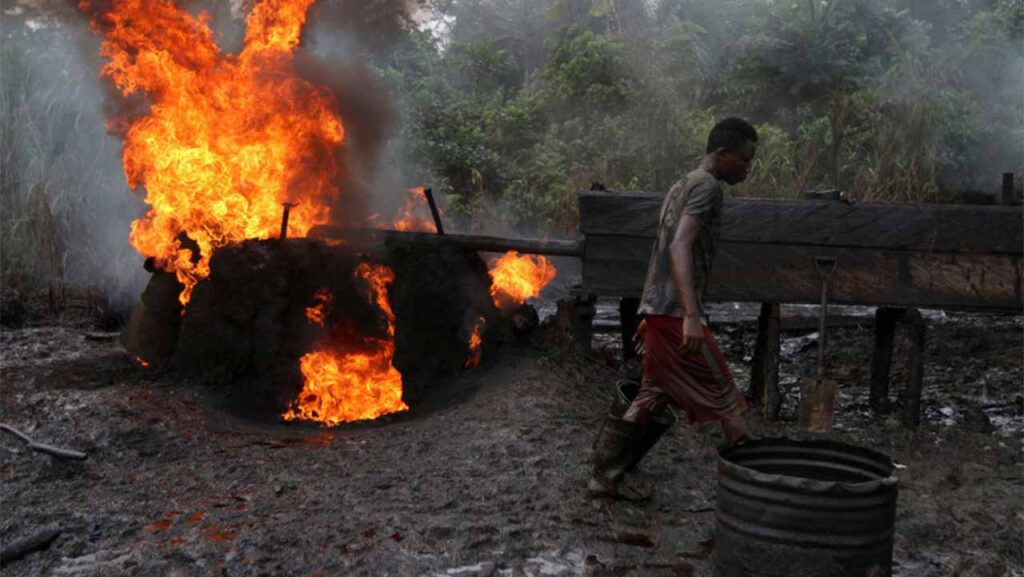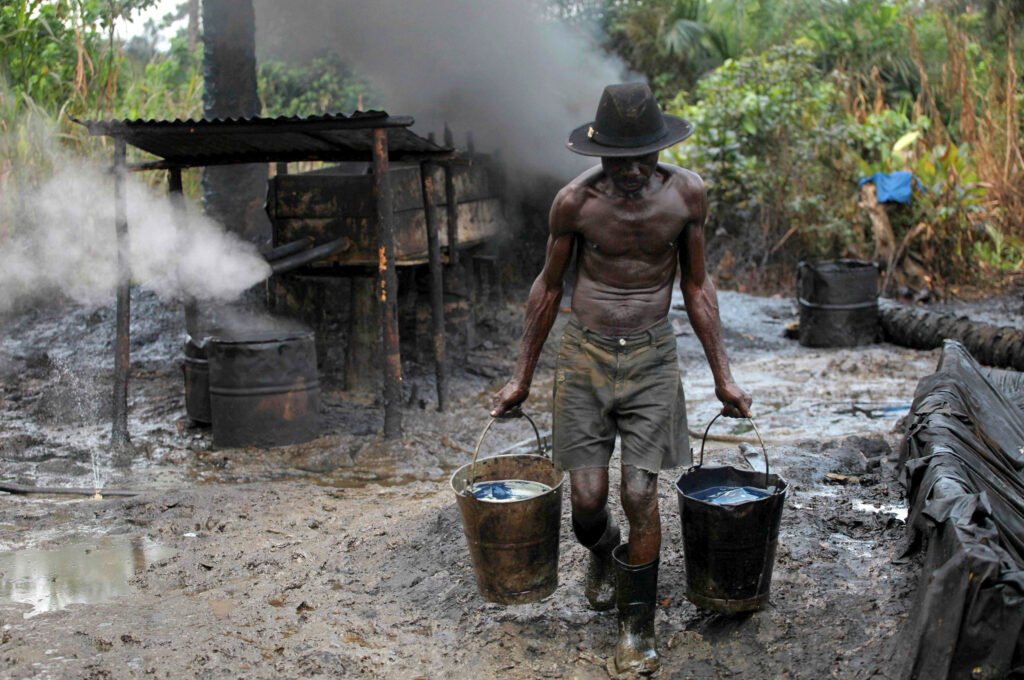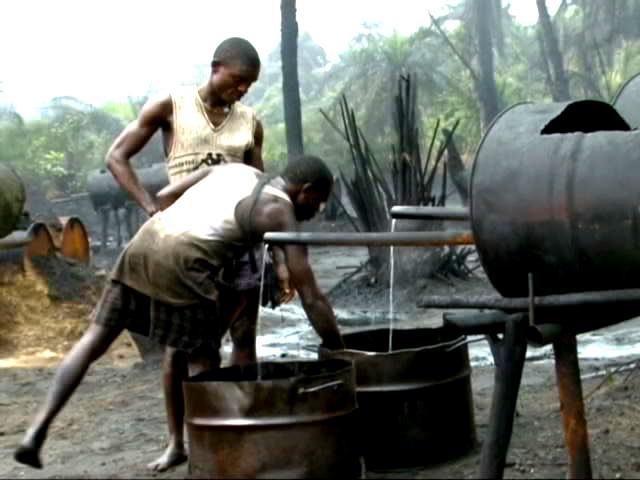
Problems looking for solutions: illegal oil refining & the soot pandemic in Port Harcourt city
On 26th April 2018, CNN published an article on their news website titled “Port Harcourt: why is this Nigerian city covered in a strange black soot?” The city which used to be called “The Garden City” now had a cloud of black soot everywhere that was becoming a major cause of concern for both residents, visitors and even the international media. The CNN article quoted an activist in the city Saatah Nubari who said:
You’re wiping your face with a handkerchief and everything is black. You’re trying to clean your car and everything is black. Or you look at the soles of your feet and it is just pitch black.
According to the PuroClean Blog, soot is made of tiny carbon particles created by the incomplete combustion of fossil fuels. It contains acids, chemicals, metals, oils and dust. Academics have told us that crude oil is a fossil fuel which was made naturally from decaying plants and animals living in ancient seas millions of years ago.
About eight years before the CNN report on soot covering Port Harcourt city, precisely on the 4th of August 2010, CNN had earlier published an article titled “Death and oil in Niger Delta’s illegal refineries”. This article followed and reported the rise of illegal oil refining and the dangers it posed to the lives of the individuals who were involved in the process. While this article highlighted the dangers of death through explosions to individuals directly involved in the illegal refining of crude oil, it did not highlight or investigate the pollutive impact of this activity on the environment and on residents of nearby cities.
The industrial refining of crude oil is done through a process called fractional distillation which involves boiling the crude oil in a refinery, and because the various components of crude oil have different sizes, weights and boiling temperatures, they are separated through the boiling process and the different components are collected through a well-connected infrastructure of pipes. This process ends up producing different materials such as kerosene, petrol for cars, aviation fuel, diesel, lubricating oil and many other industrial products. The illegal process of refining crude does not follow such an organized process. According to the CNN report written by Christian Purefoy in 2010, “the contraption looks like a crude school science project. The aim is to boil two barrels of oil to evaporate the diesel which then passes down a rusted pipe, cooled by water, and drips slowly out into a container at the other end.”
The process of illegal refining is focused on just collecting the most in-demand product – diesel, and does not factor in the many other elements of the crude oil that is released into the atmosphere through burning and evaporation which are never collected. These chemical components released into the air do not disappear obviously, converting the air above the surrounding cities into a free and open chemical laboratory where reactions happen unchecked and unhindered with no one in control of the outcomes.



Port Harcourt is the capital city of Rivers State. The entire state covers an area of 11,077 square kilometres and is divided into 23 local government areas. Ikwerre, being one of the local government areas sits on a space of 530 square miles. In January 2022, Channels TV in Nigeria reported that 112 illegal refineries had been discovered in Ikwerre local government alone. This goes on to give an idea of the amount of illegal refining of crude oil that could be happening around the state. It may be modest to estimate that there would be not less than 1,000 such illegal facilities spread across Rivers State in Nigeria’s Niger-Delta region. If these activities have gone on for the last 20 years since CNN first reported it, it may be the perfect explanation as to why the city of Port Harcourt would be covered in soot containing all sorts of harmful chemicals.
PuroClean Blog tells us that “soot can enter the body through inhalation, ingestion or via the skin and eyes. These toxic particles can cause breathing issues, including asthma, bronchitis, coronary heart disease, and even cancer. Infants, the elderly, and those who already have breathing problems are the most affected.” Apparently, a lot of people are already suffering the impact of this pollution, it just happens that they probably never linked the health implications to the activities happening around.
I have visited the city of Port Harcourt many times, but I have never been afraid of the impact of inhaling soot on one’s health until my last visit in February 2022. Thanks to COVID-19, everyone is now required to wear a face mask which now serves as an air filter. I have been wearing masks since 2020, but for the two days I spent in Port Harcourt, my face mask had thick layers of black dust around the breathing areas. This was when the reality hit me that without the masks, all those layers of black soot would have been ingested into my system, causing health damages that I may not realize early. I later discovered that there was already a social media hashtag #StopTheSoot which was started on Twitter by an activist named Sandra Ezekwesili. She began the activism when a friend who was asthmatic visited her and began to choke on the air in her office which apparently was covered with soot.
Solving the air pollution caused by illegal oil refining is not going to be simple. This is because there are layers of other problems, including poverty, corruption, corporate irresponsibility and government negligence. Oil companies who own licenses for oil drilling have polluted the land and waters through oil spillage and have not taken responsibility for the cleanup, destroying the other means of livelihood of local residents who used to depend on fishing and farming. Now the locals are poor, cannot fish and cannot farm. There is government negligence in addressing and prosecuting these big corporates due to deepened corruption in the systems, leaving the locals with no hope but to find other means of livelihood. The only resource they have access to easily is crude oil. They cannot sell crude oil in the open market because the National Petroleum Policy only allows for certain licensed elements to sell unrefined crude oil. However, there is a high demand for diesel which is refined from crude, and since these locals have figured out a way to refine locally, they have found a means of livelihood.
At this point, the first point of call is to raise awareness of the dangers of these activities and the pollution. Solving this problem will also involve a lot of government might and resources, so the next step would be to draw the attention of key players in the government as to how this problem is impacting the people they lead. It will require further research to find how many sicknesses or deaths are caused by soot pollution and use this as a springboard to engage the government.
Attempting to stop the illegal refining of crude is a direct attack on the livelihoods of thousands of families. Continuing to illegally refine crude is a direct attack on the health of millions of individuals who live in the cities affected by soot pollution. Where do we begin to solve the problem from? Share your thoughts and share to raise awareness.



